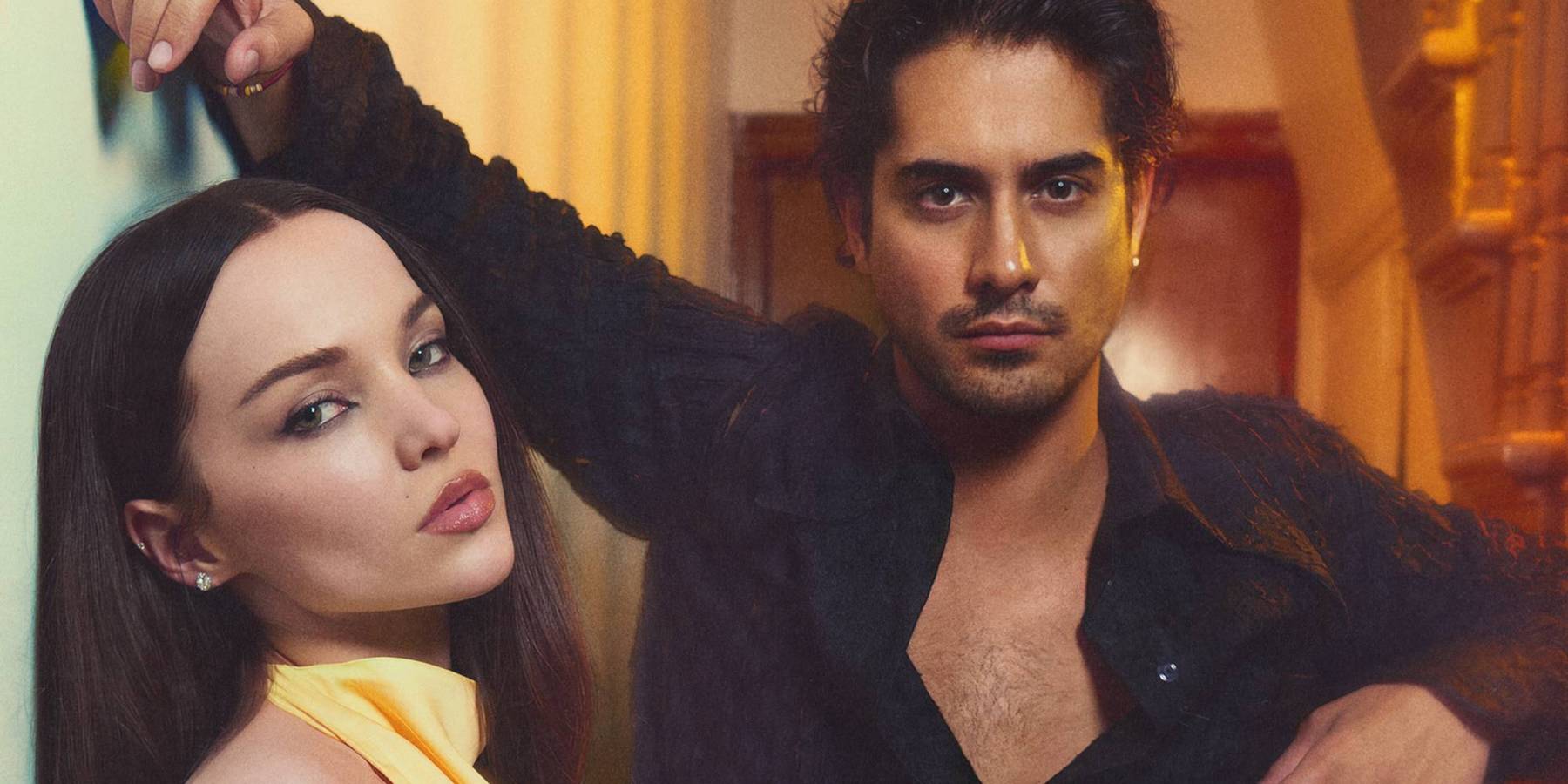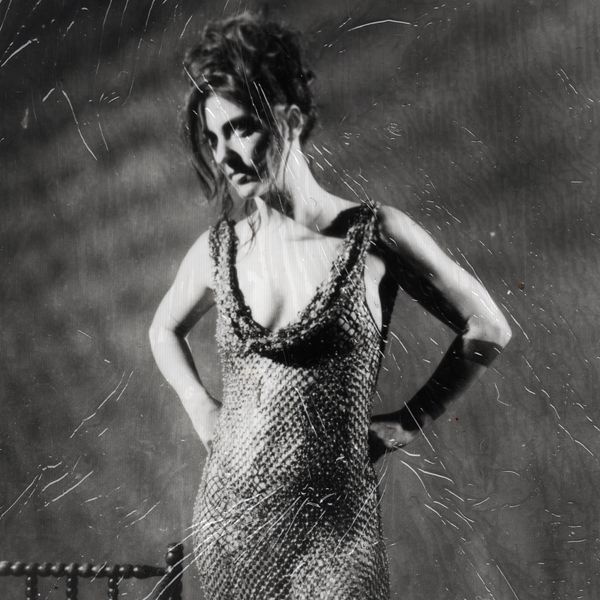
Sharon Van Etten & The Attachment Theory Embrace a Dark World
By Eric Eidelstein
Feb 06, 2025
After a rather quiet album cycle, Sharon Van Etten united her band at a rented space in the Joshua Tree-adjacent Yucca Valley to rehearse for her We’ve Been Going About This All Wrong tour. Van Etten wrote the 2022 album in pandemic-induced isolation, and as the group finally gathered to breathe life into it, a new project — perhaps an unconscious reaction to the constraints of working apart — was born under a fitting moniker: Sharon Van Etten & The Attachment Theory.
“I’m a real loner creatively," Van Etten tells PAPER. "I tend to write by myself and build upon my demos by myself. Sometimes I’ll share them if I need the bass line to be improved or if it’s only my shitty drum-playing — Like, can I get a real drummer in there and flesh it out? But it’s always after the fact. And I tend to dictate what I want and tell people what to do,” she adds, noting her self-titled record. “So, this process has been very different in that I really wanted my bandmates to start the songs from the ground up with me.”
For Van Etten and bandmates Jorge Balbi, Devra Hoff and Teeny Lieberson, “from the ground up” entails something broodier and grander than her previous works. The songs on Sharon Van Etten & The Attachment Theory are composed of mesmeric synths and chilling refrains — and while they deviate from Van Etten’s singer-songwriter preoccupations, their scopes are just as sharp and observational. They're also darker, as exemplified in the video of the album single “Afterlife,” where we find Van Etten essentially embracing the role of banshee, giving us her best Siouxsie to introduce us to this new vision.
Below, PAPER sits down with Van Etten to discuss the new record, mortality and how movies have influenced her artistry.
You’ve mentioned the impetus of this project, this next chapter, was just “jamming out.” Can you expand on that?
We were getting ready to tour the last record We’ve Been Going at this All Wrong, and we hadn’t all been in the room together. We weren’t even in the same room together as a whole band when we made the record very piecemeal.
COVID?
Yeah. It’s funny. I hesitate to say “COVID” because I’m sure everyone is tired of it. But I made it during COVID. I leaned into it because I wanted to go there. I’m not going to pretend everything’s roses. That’s how I work. So, we didn’t all get to be in a room to perform together. And so, I thought it would be really important, before we go on tour together as a family unit, to reconnect and find the space. It was more of a band camp. Like a literal band camp where in the morning we would wake up and have breakfast and coffee and chitchat, and then we’d work until lunch and then we’d work until dinner and make dinner together and then we would watch Yellowjackets every night.
Wow.
It was amazing. I want to do it again. I feel like it should just be a retreat for artists to go and connect and not have to have it be something. I feel like we found each other sonically in that environment. We made it to the last day of rehearsals and we went through all of the material and we had an hour or two left or something. And that was when I was just getting so tired of hearing myself that I asked if we could take a break and when we came back if we could just jam.
I always laugh at that word because it has all these negative connotations, but in that moment there’s no better word. I didn't want it to be anything that exists. I was just really inspired by the song palette we were working with and I wanted to see what happened. We ended up writing two songs, which were “Southern Life” and “I Can’t Imagine.” We loaded out the next day. I got mixes from my engineer, Dan Knowles, who was doing the front of house for us. And I just had a little spark. And I listened to it many times after our rehearsals, and I knew that would be the next thing. Because I was able to let go. I was more immersed. I just had a microphone and they all played while I sang. It was very liberating, and I felt like that was the next step creatively for me, to try something new in that way
Have you ever gone into something unplanned? Or have you always been more structured?
When I write, I write. I write. I write. I have a collection of songs and when I get to a certain point, a certain number of songs, and when I have to start thinking about a record, I think about the folders that keep piling up. Then I try to make sense of what I have and build upon that. I try to find the thread. I’m a real loner creatively. I tend to write by myself and build upon my demos by myself. Sometimes I’ll share them if I need the bass line to be improved. Or if it’s only my shitty drum-playing. Like, can I get a real drummer in there and flesh it out? But it’s always after the fact. And I tend to dictate what I want and tell people what to do. So, this process has been very different in that I really wanted my bandmates to start the songs from the ground up with me. But it’s scary. I think we’re all a bit vulnerable and learning this process together. Quite honestly, the band was more experienced than me doing it because they’ve played with other people and they have way more band collaborations than I have in the past.
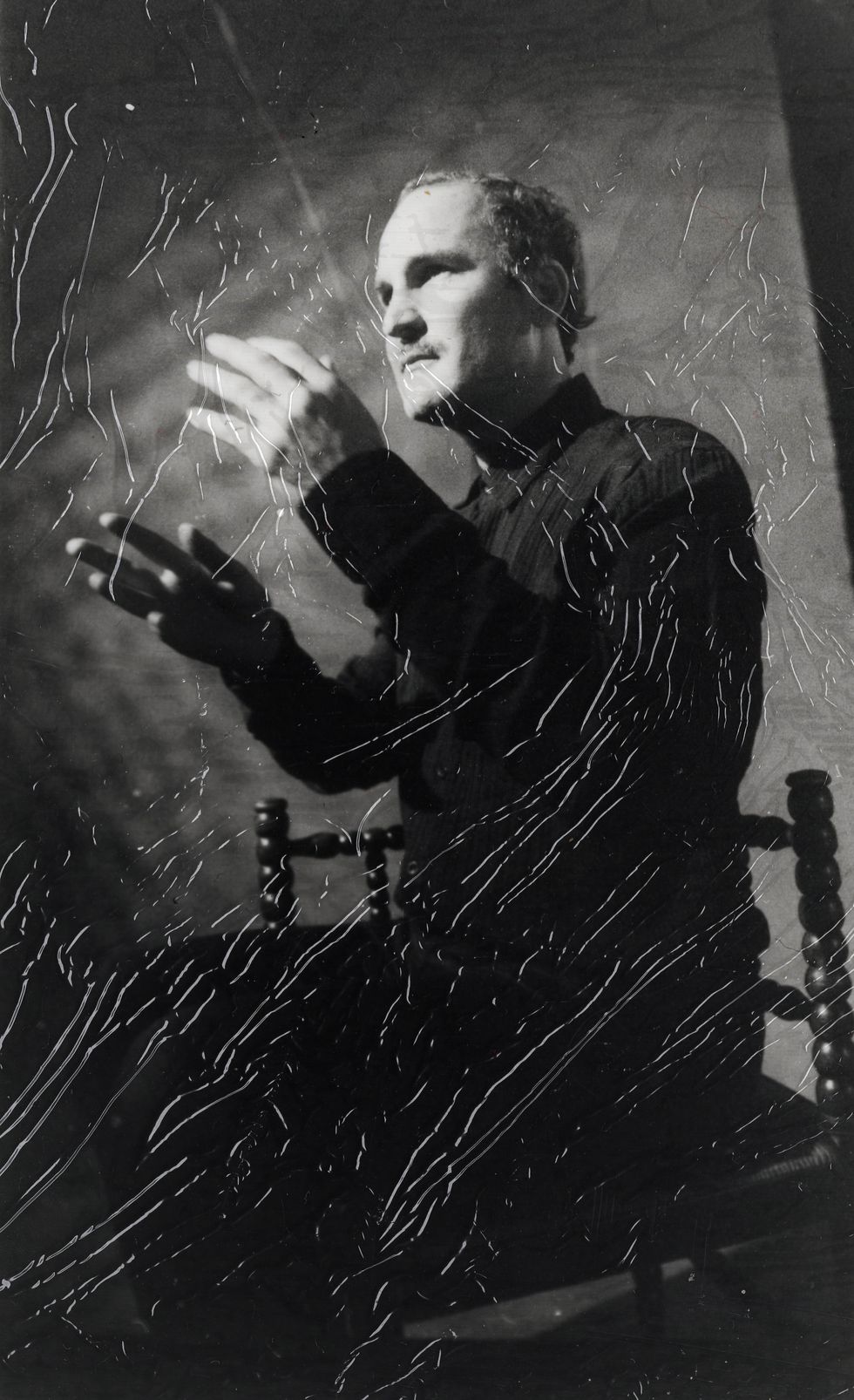
Jorge Balbi
And where did “Attachment Theory” come along?
It’s funny because not all band members were on board with that name, but I think the agreement was we weren’t going to talk about our attachment styles. That was the name I had been kicking around for a while. We had a long list of other names that maybe I’ll one day release as a joke, but I feel like when you’re in a band you’re showing people that this is your chosen family. You have your blood family, but what it takes to really be in a band and tour and create … these are your siblings. And you create this dynamic together. And it’s not always perfect. You’re still learning how to communicate and find each other’s languages. But at the end of the day, I know that my chosen family, all they want to do is support me. And I want them to know that I support them. So even though it was a tongue-in-cheek name, I also wanted to convey that we are family. But we also come from very different backgrounds. Regionally, genre-wise, experience, age. Our ages range from 30s to our 50s. I just feel like it’s a pretty incredible thing to come from all these different places and to be together in one room to make something like this.
Given that this came out of a rehearsal process, would you say this was birthed out of the last record? Or that they’re in conversation in some way?
In defining the sonic palette from the last record live ... because Teeny wasn’t on that record, but she came on to tour it. So, I think it was the addition of her energy while figuring out the palette. It’s a continuation of the narrative, but more the sonic narrative. For me, I feel like I was more inspired by all the sounds we’d been getting. Like, how do we make it gnarlier. I want to go darker. Can I go darker? Is that okay?
I especially felt that in the opening song, “Live Forever.” The refrain, “Who wants to live forever?”: I was curious about that and why you decided to open with it.
That song, remarkably, was one that we wrote from start to finish in one sitting. It was birthed after a conversation with my bandmate, Deva. She and I were talking about this article that I read about an experiment on mice. An anti-aging technology thing. Where they could inject something into the mice that regenerates the cells that make you age. It’s funny because this was before The Substance.
Do you know about that billionaire guy who injects himself with all sorts of things not to age?
He’s the dad? He makes all of his family do it too? It’s all science-based — this is the time of day you need this and that, right? I think we’re talking about the same person. He’s very much this is the cardio you need.
He looks like a vampire.
I don’t think he eats food. So, the joke was, if you could live, forever would you? And there was this specific article that said that after 50 you could take it and it could reverse the aging process, but if you take it before then it has the opposite effect. I was thinking about the movie Death Becomes Her. Anyway, we just had this conversation, would you wanna live forever? And there’s this part of me that’s like I would want to see my son grow up, but I don’t know if I want to see what happens to the world. How do you draw the line? I feel like I would just wanna die.
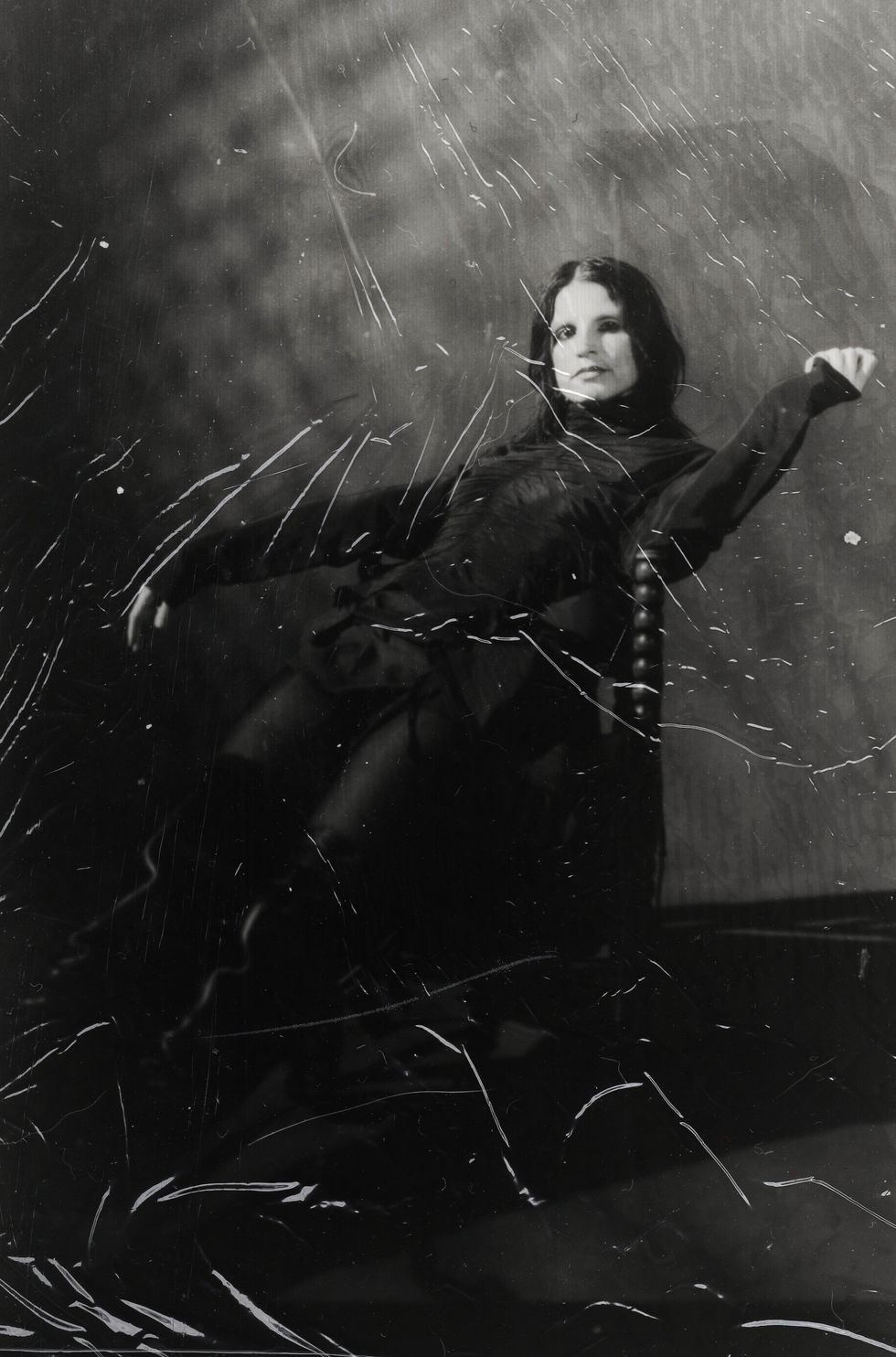
Teeny Lieberson
Yeah, life stops getting fun.
Yeah. But who knows what you’re capable of. What is this fascination with avoiding death? We can’t maintain the planet already. And you want more people to stick around? I don’t understand. Anyway, we had a walk and talk about this article that I read and we walked right into the studio, and I think Teen or Charley, or another bandmate — Charley [Damski] was with us for the writing process, for half of it, and he got asked to go on a Lana Del Rey and he never came back. Fair enough. But he had started the pulsating base you hear at the top. Teeny came in with this incredible arpeggiation on her Matriarch, I think it was. And all of a sudden, I heard a melody within that. And the words just came out of my mouth — "Who wants to live forever?" It was just fresh in my mind. And it all came together after that. It was one of those miracle things that unfolded. We probably wrote it within the hour.
In the record, there’s an existential and maybe more abstract quality to a lot of the songs. It didn’t feel like there were traditional narratives. Is that part of the style of how you guys made things as a group? More stream of consciousness and less structured?
I feel like a lot of the songs are centered around what we were talking about. So that’s still based on my life. But my insular writing process from past records is all about what I’m going through. And I try to edit it in a way, from my initial process, to how can I make this general enough for people to relate to it in their own way. But now I feel, collectively, we’re all feeling this sense of mortality in a very real way. And between us having aging parents and being a parent and just looking around the world … everything feels darker. And I feel like, over the last few years what has been more important than anything is a sense of community. When everything else seems hopeless, I look at my chosen family. I look at my immediate family. I look at my neighbors. And I have to remind myself to think this way instead of outward.
Even in a darker space, you still manage to have songs that feel anthemic. They build you up in certain ways.
What’s been fun … I don’t know if fun is the right word. But it’s been fun to build songs from the ground up because while I’m writing the melody, the band is bubbling up and growing with me, as opposed to me imagining it in my head, just with a guitar. I can actually perform with the arc happening in real-time. I think that affected the performance and writing the main vocal.
You mentioned Death Becomes Her, and I remember for the last album you mentioned a song that was inspired by The Sandlot.
Oh! That was the album title. That came from watching that movie over and over again with my family during the height of it all. It was our comfort blanket. It was what the kid said, you know the scene. They have all these different ways of trying to get the ball over the fence. And at what point they try to rig this vacuum cleaner to suck it up from the other side, and the vacuum explodes in his face. This is always a scene that we laugh at. And this one particular day I was having a really hard day. And it was this scene where he shakes the dust off and says, “We’ve been going about this all wrong.” And I remember tearing up. I just wrote that line down. Everything felt really hopeless during that time. And I just wanted to think — why does that bother me right now?
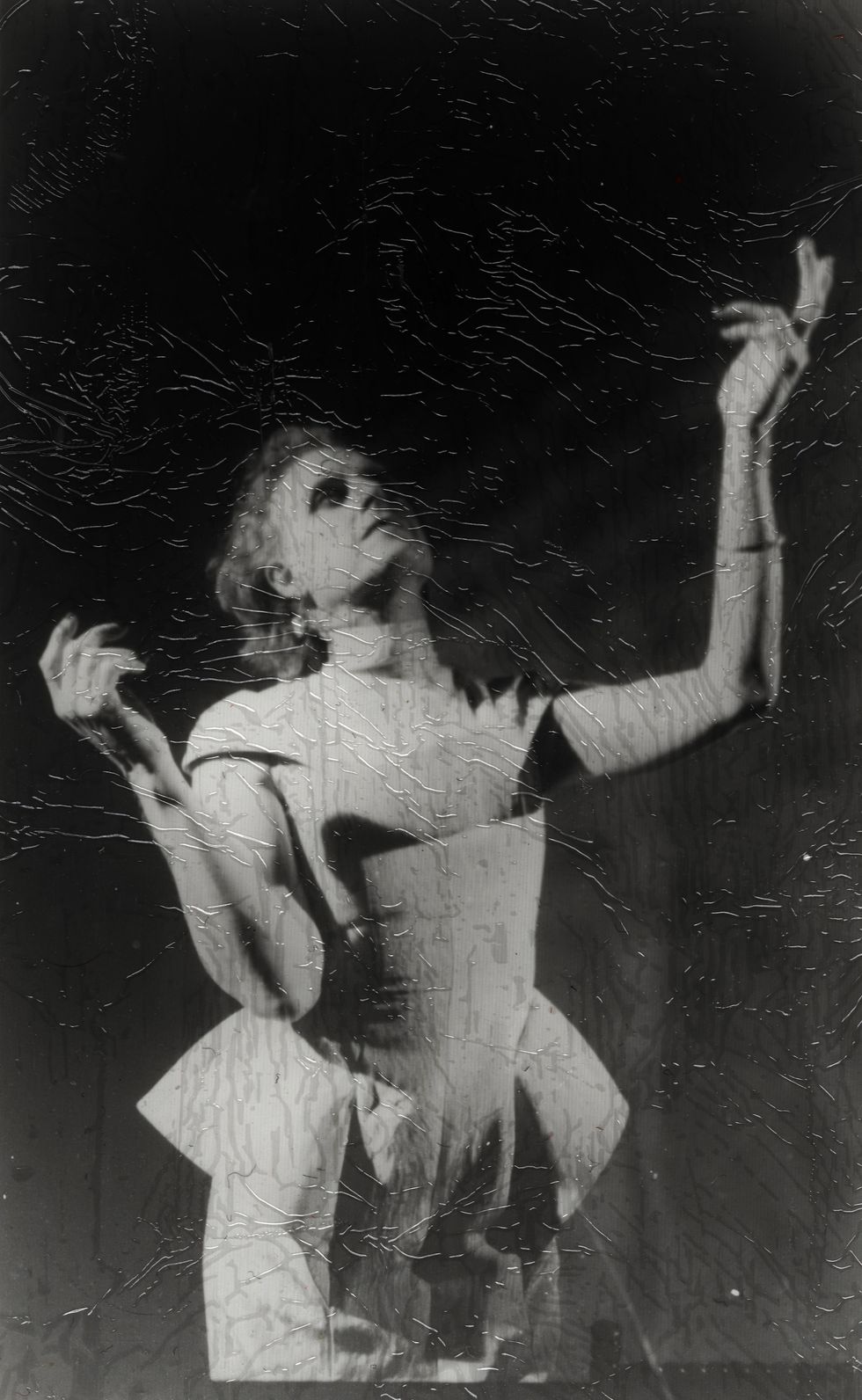
Devra Hoff
When you’re writing or are just creative in general, do you consume a lot of media? Do you watch a lot?
I don’t tend to do a lot of research. Before we went into our second writing session, we went to see The Cure at the Hollywood Bowl. That set the scene. You know, we are huge fans, of course. But we knew going into it what we were listening to all already. Like, Joy Division, The Cure and Kate Bush. The list goes on and on. But I feel like we were already creating the palette based on music we love. And as a kid that was music I always wished I could play. I just never thought, being a folky girl, that trajectory was ever possible. So that’s what’s been really exciting.
This is like your Bob Dylan goes electric moment.
That’s the dream. But it feels really good. But as far as movies. Having a kid makes it hard. My Spotify is so fucked right now. I sent a screenshot of my Spotify end of year, and it was the song "Billie Eilish" by Armani White. My Spotify is a little confused right now. All this hip-hop in there. In some ways, I’m internalizing all these beats.
Spotify, in a way, is also a record of what you’re listening to while you’re working.
Yes, even subconsciously. I let my son DJ most of the time. He’s into Beastie Boys. He’s into rap and hip-hop. He likes some oldies and jazz, but lately, it’s all about beats. He’s a drummer, and so I want to get him a drum machine. But he’s really into beats. I feel like that’s always been something I’ve been into, but I’ve been encouraging it in him because he just wants to replicate every hip-hop beat on his drum kit. And movie-wise. Every now and then when I get to watch an adult film [pauses] ... I mean not an adult film. Actually, a lot of porn has been inspiring. No. When I can watch a rated R movie and there’s actually a score, that’s informative. Like, where you don’t expect it. I take notes when music changes or enhances a scene. And how to strip things back to make more of an impact. That’s where “Fading Beauty” came from. I acknowledge sonically this record is very big, and we are going to need a breath somewhere. So, we find this feeling to give this record a break where I really think people need it.
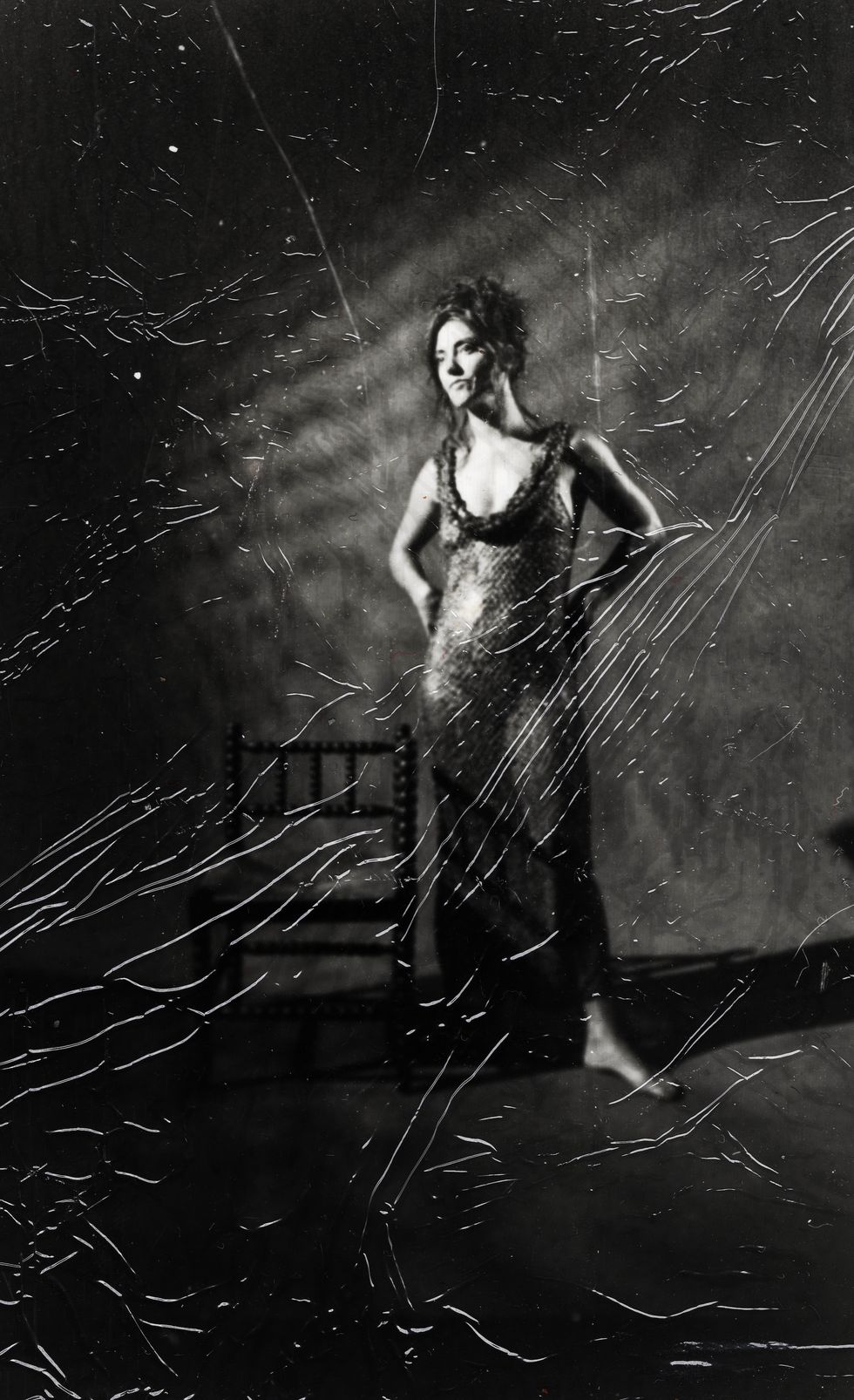
Sharon Van Etten
Part of this record is produced by Marta Solangi who has produced music for Björk and Depeche Mode?
I had worked with James Ford (producer) before on a couple of mixes for past material. She was his right-hand person. But other than that, I didn’t know much about her. But in talking with her I loved just how passionate she was about music, synthesizers and tape loops. She just had this fire in her that I was really excited about. So, I just took note of it, not really knowing where the album was going yet. But I had it in my head. And then it came to thinking about producers, and I felt the sound of this record was very London. And I had never made a record in a location like that before. I felt like I wanted the band there, and I wanted us to recreate these songs together in a space, in a live setting. So I reached out to her. I knew she was an Italian living in London. I love the female energy too, which you barely get as a producer. I love all the producers I’ve worked with, but I knew I needed that for this moment. I sent her the demos and she had to go back home to Italy to see family and she said that she was just driving through the countryside of Italy listening to the two or three songs I sent her and she wrote me immediately. Like, “I really want to do this.” And she recommended the Church Studios because, obviously it’s history, but the room itself you can actually set up in a circle like we did in those writing sessions. Also, the board is in the room. So, she was an additional member of the circle in there with us, communicating with everybody without having a separate room. She was an extension of us. And she had a great ear. She helped with a couple of form things, but I really think that a huge strength in her role was hearing everybody’s ideas out. When I first spoke to her, I was trying to drive the point home that this was a band record. I know that everyone is going to look to me, and I’ll give you my opinion, but I want everyone to speak about their needs. And things they want to try. I want everyone to feel heard. Yes, at the end of the day, I’m the leader but I wanted to make sure the core is still being heard and listened to and that we try everything. At the end of the day, we have to make a vote. But this is really important to me. And she honored that.
What do you mean when you said this felt very London?
This felt like a UK record, especially from our early influences. The post-punk world. There are other influences that aren’t British, but I also felt like it would be important as a group without a lot of external distractions, like having to go home or work or whatever. I made sure to be very decisive with the time. Because we had three weeks to make this. We had already set the release date. We already had a tour booked for next year when we were recording this in July. I remember telling everybody, "If I’m telling you to do this it’s only because if we don’t finish it we’ll have to cancel everything that we’re working towards. We lose our place in line. If we don’t get the master in hand by August 9th or whatever it was, we lose our place in line and it probably won’t come out until 2026." But I thrive with deadlines.
Because you brought it up earlier, what is your attachment style?
Well, it’s funny. That’s something we all agreed not to talk about.
That’s very fair.
Well as a joke because one bandmate was like, I already talk enough about that in therapy. The joke is, I think I’m a little bit of all of them. I’m one of five kids. I feel like I latch on to every insecurity.
Photography: Susu Laroche
From Your Site Articles
Related Articles Around the Web
MORE ON PAPER
Entertainment
Dove Cameron and Avan Jogia Broke Their Molds
Photography by Gustavo Chams / Story by Joan Summers
Photography by Gustavo Chams / Story by Joan Summers
18 February
ATF Story
Madison Beer, Her Way
Photography by Davis Bates / Story by Alaska Riley
Photography by Davis Bates / Story by Alaska Riley
16 January
Entertainment
Cynthia Erivo in Full Bloom
Photography by David LaChapelle / Story by Joan Summers / Styling by Jason Bolden / Makeup by Joanna Simkim / Nails by Shea Osei
Photography by David LaChapelle / Story by Joan Summers / Styling by Jason Bolden / Makeup by Joanna Simkim / Nails by Shea Osei
01 December
Entertainment
Rami Malek Is Certifiably Unserious
Story by Joan Summers / Photography by Adam Powell
Story by Joan Summers / Photography by Adam Powell
14 November
Music
Janelle Monáe, HalloQueen
Story by Ivan Guzman / Photography by Pol Kurucz/ Styling by Alexandra Mandelkorn/ Hair by Nikki Nelms/ Makeup by Sasha Glasser/ Nails by Juan Alvear/ Set design by Krystall Schott
Story by Ivan Guzman / Photography by Pol Kurucz/ Styling by Alexandra Mandelkorn/ Hair by Nikki Nelms/ Makeup by Sasha Glasser/ Nails by Juan Alvear/ Set design by Krystall Schott
27 October
